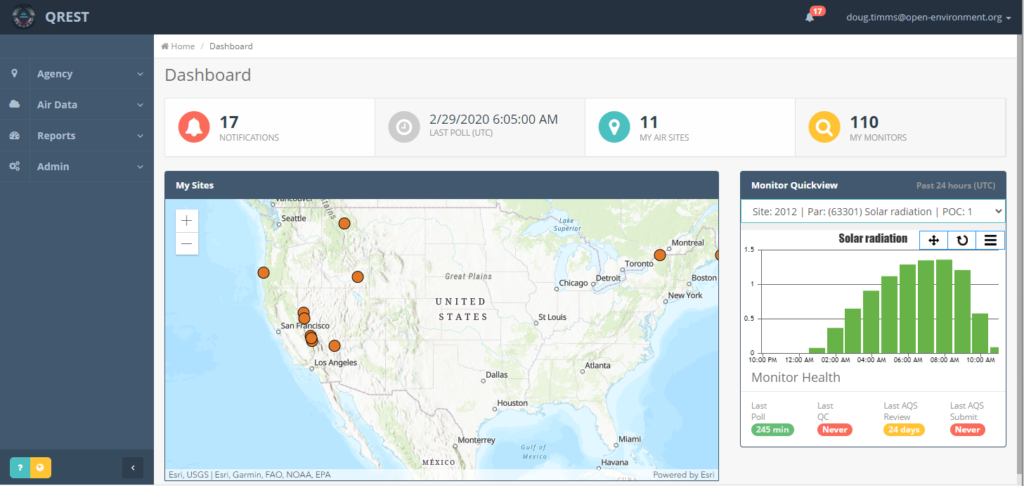
QREST, the free open source automated air quality data retrieval tool
In June, the Institute for Tribal Environmental Professionals, in partnership with several tribes, launched the Quality Review and Exchange System for Tribes (QREST). QREST is a free open source tool that automatically retrieves data from data loggers (though manual import is also an option), stores it in the cloud for tribal data quality review, and supports data submission to EPA’s AirNow program and Air Quality System (AQS).
QREST supports tribal air monitoring programs through the following features:
- Data Logger Integration: QREST integrates with other systems to automatically retrieve tribal air monitoring data.
- Automated Data Calculation: As data are streamed into QREST, hourly summaries are immediately calculated and stored, using logic defined for a tribe’s specific monitoring conditions.
- Automated Data Validation and Alerting: Validation checks are automatically performed on data streamed into QREST. Designated tribal operators are notified of exceptions via email and/or text message.
- Multi-Phase Data Review: A two-phase data review complete with a recorded audit trail is provided prior to AQS submission, fulfilling the independent quality assurance function.
- Quality Control: Single point Quality Checks, Annual Performance Evaluations, Flow Rate Verifications, Semi-Annual Flow Rate Audits for particulate matter, and Zero/Span checks can all be managed through QREST.
- AQS Integration: Data are sent to AQS via an integrated Node Client. QREST also retrieves AQS reference data and other relevant codes and limits when EPA makes changes.
- AirNow Integration: Tribes can opt to automatically send data from QREST to EPA’s AirNow program.
- Public Data Sharing: A map-based website allows tribes to share air data and downloadable data reports with the public.
Programmers are encouraged to browse or download the QREST Source Code to test out or contribute to this active project. To begin using QREST, or to obtain more information, please contact Melinda Ronca-Battista of ITEP.
